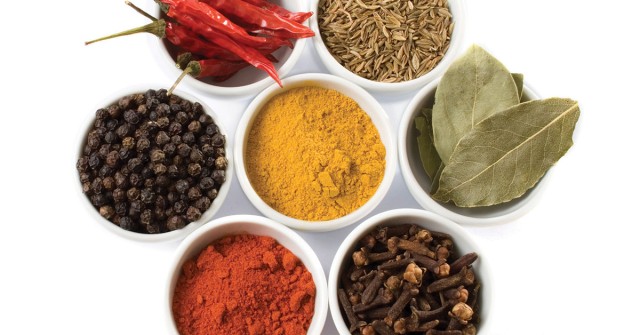Colder Weather and Boosting Your Immunity

Most of us don’t give much thought to the health of our immune system until we come down with that bug that’s going around. Then we’re apt to wish we’d been paying it a bit more attention.
“When an illness lingers, when it’s tough to get over a cough or a cold, when you get the same sickness over and over, then your ojas is probably compromised,” says Larissa Hall Carlson, Kripalu Schools faculty member and former Dean of the Kripalu School of Ayurveda. Ojas is a Sanskrit word that means “vigor.” When your ojas is strong, your immune system is fortified.
When it’s compromised, a host of symptoms can occur, including fatigue, inconsistent hunger signals, weight gain or loss, disturbed sleep, and increased sensitivity to light and sound. And weakened immunity, Larissa notes, can also have mental and emotional effects.
“If you’re more frazzled, scattered, restless, indecisive, if it’s difficult to stay steady and focused, or if you’re lacking motivation to get daily tasks done, that could be the result of a compromised immune system,” she says.
What Weakens the Immune System
Travel. It can be fun, but it can also “erode your routine, making your system more vulnerable,” Larissa says. When you travel, you can lose the habit of exercising or doing yoga. Traveling also exposes you to more bacteria and germs; it usually leads to eating out more (which often means eating less healthfully); and it’s more apt to disrupt sleep patterns.
Stress. It’s the cause of countless health problems, so it's no surprise that stress weakens your immunity, too. “When you go through any kind of trauma,” Larissa explains, “like a divorce, a death, the loss of a job or a relationship, that definitely increases stress and depletes the immune system.”
Overworking. Multitasking and taking on more responsibility at work might appear to move you up the ladder faster, but the results aren’t always positive. “When you’re overworking,” Larissa notes, “you aren’t taking breaks, there isn’t time for mindful eating, and you’re less likely to find time for regular exercise or nurturing relationships with family and friends. All of these things can lower immunity.”
How to Boost Your Immunity
Imagine your immune system as an invisible, protective force field that you can fortify. Here are Larissa’s tips on boosting your immune system, especially as the weather becomes cooler.
Get more sleep. Slowing down and getting into harmony with the rhythms of nature will naturally lead you to increase your sleep time. As summer winds down and fall approaches, there’s less daylight; slow down earlier and get to bed earlier, closer to 10:00 pm if possible. “One of the pillars of Ayurveda is sleep,” Larissa says. “Adequate sleep allows your immune system to recharge.”
Cover up. Autumn’s arrival means cooler days and nights. Keep an extra sweater or jacket in your car or your bag for those times when the temperature drops.
Drink tulsi tea. Also known as Holy Basil, tulsi is valued in India for its purifying qualities. “It’s especially good to drink tulsi tea in the fall and winter, because of its heating nature,” Larissa explains. It’s antiseptic and antibacterial, good for headaches, and reduces anxiety, fever, and congestion, she says. She recommends steeping it for five minutes and drinking one cup daily, or more if you’re fighting off a cold.
Breathe. Dirgha pranayama, or Three-Part Breath, is well worth practicing to boost your immune system, according to Larissa. Sit in a relaxed position with an elongated spine. Fill up the belly with breath, then fill the rib cage, and then allow the breath to fill your upper chest, even your collarbones. Then release the breath in the opposite sequence. Larissa recommends practicing Dirgha for one to three minutes, two to four times a day. “It removes congestion, increases circulation, and releases stress and tension,” she says.
Be quiet. “Increasing silent time is one of the best ways to prevent illness,” Larissa says. “The mind can get overwhelmed with information. Silence allows it the opportunity to digest, recharge, and replenish itself.” She suggests eating at least one silent meal a week, going for a walk without your iPod, turning off the radio in the car, putting your cell phone on silent sometimes, and turning off the TV or computer earlier at night and reading or journaling instead.
The benefits will be like deposits in your immune system’s bank account—they’ll build up over time and pay big dividends.
Find out about upcoming programs with Larissa Hall Carlson at Kripalu.
© Kripalu Center for Yoga & Health. All rights reserved. To request permission to reprint, please e-mail editor@kripalu.org.
